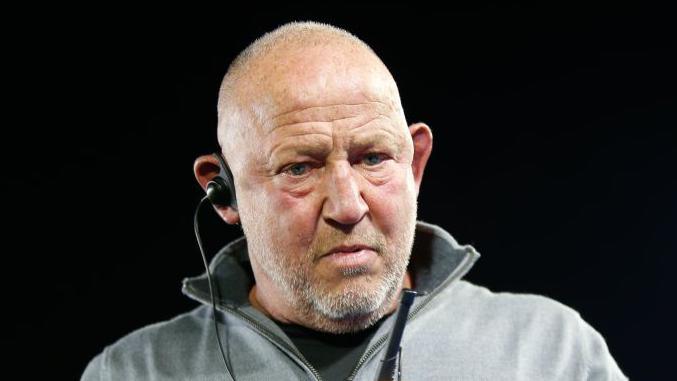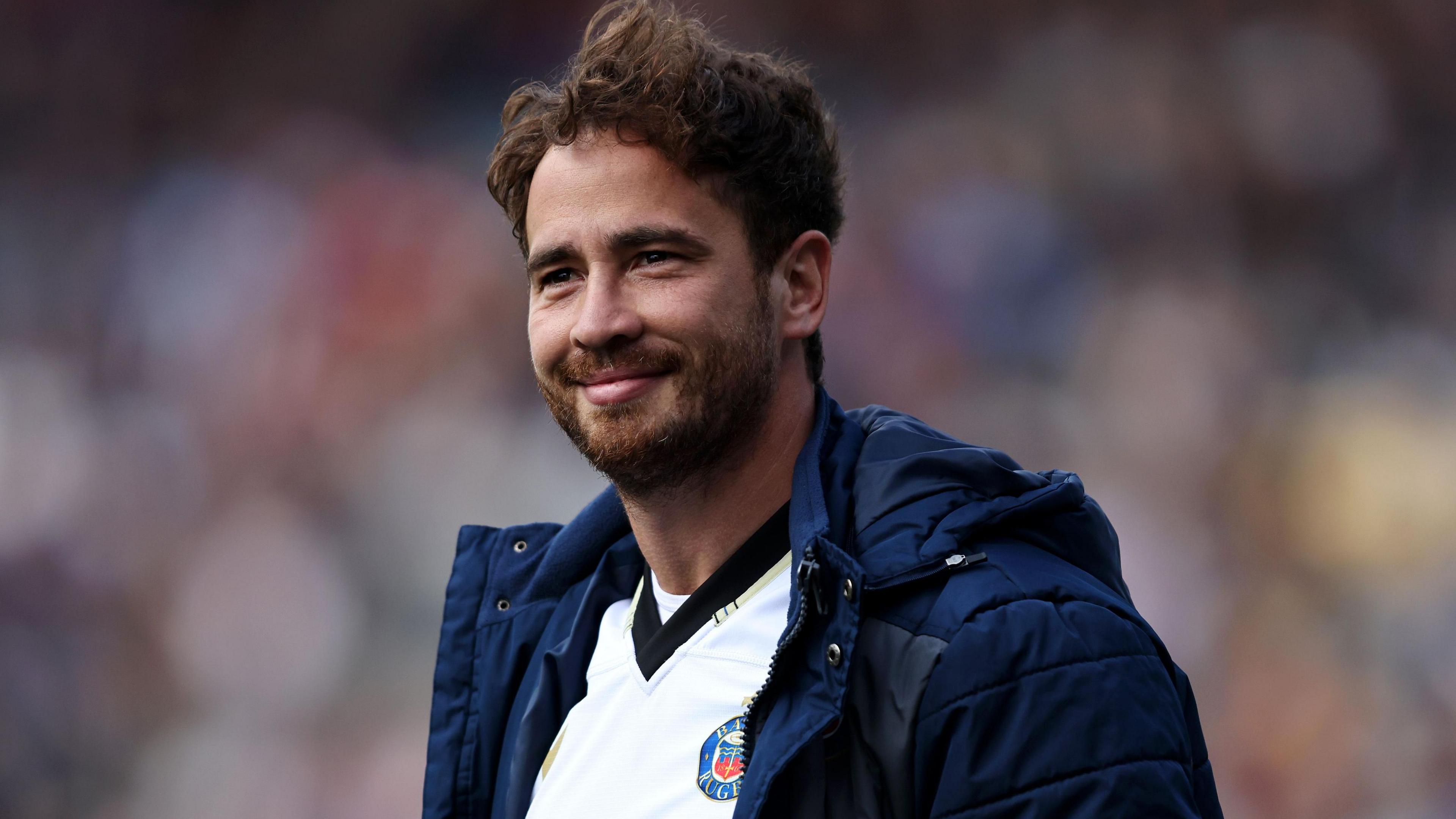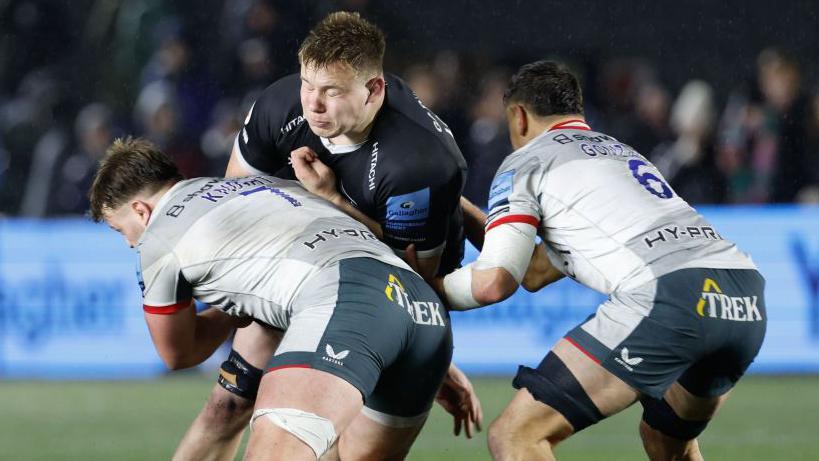Rugby union crying out for superstars says Diamond

Steve Diamond has been in charge of three clubs in the Premiership
- Published
Rugby union is in desperate need of some new superstars to help promote the sport, says Steve Diamond.
The Newcastle Falcons consultant director of rugby is keen to get more eyeballs on the sport and generate more interest at all levels.
"We need superstars creating in rugby. We need someone on the front pages and the back pages," he said.
"We need controversy. We need people talking about the game on a regular basis."

Danny Cipriani retired from rugby in 2022 after an eventful career on and off the pitch
'Cipriani as well known as Wilkinson'
Domestic rugby union in England is overshadowed by Premier League football in terms of attendances, interest and media coverage and Diamond understands that the round ball will always be king, but he would love to see rugby players emerge as household names.
Jonny Wilkinson, a 2003 World Cup winner, cut through to become a figurehead of the sport during his playing career, but Diamond cites his old Sale Sharks fly-half Danny Cipriani as another player who attracted headlines.
Cipriani only played 16 times for England, compared to Wilkinson's 91, but his up-and-down career and personal life continued to generate news.
France captain Antoine Dupont enjoys superstar status in his homeland, which was only enhanced by his decision to play and ultimately win gold with his country in the Olympic Sevens in Paris.
But nobody currently on this side of the Channel comes close to that kind of appeal.
"This is where investment is needed in rugby as a mass," he said.
"That's where you need advice from American sport of how do we grow a brand. In football, it's done through the players and through success.
"Jonny Wilkinson is a great brand ambassador and a pitch perfect role model that kids can follow. But there are a lot of kids that are not like that.
"I use Danny Cip as an example and I know him well, he's been on the back pages and the front pages. As many people would know about Danny as they would Jonny Wilkinson.
"I don't know how we market them, but I know we need them."

Newcastle's 17-12 win over Saracens last month was one of 46% of games this season settled by seven points or less
'Very few 9-6 games'
Rugby in the wider media in the past few years has been dominated by the demise of three clubs - Wasps, Worcester and London Irish.
The fallout from that continues, while job cuts and big bonuses within the Rugby Football Union generates more negative publicity.
Against this unfortunate backdrop, the Premiership is providing some fine competition.
After seven matches, no team is unbeaten in this season's 10-team Premiership, while teams between third and seventh are separated by five points - the margin of a bonus-point victory.
Only last season, eventual champions Northampton Saints finished top of the regular table despite losing a third of their matches, showing how unpredictable the league is even for the best.
And Diamond believes that Premiership rugby is thriving on the pitch, with 16 of the 35 games so far this season settled by seven points or less.
"I am happy with the product," he said.
"The way the coaches are coaching in the Premiership, there are very few games where it's 9-6, it's exciting to watch.
"Apart from ourselves and Exeter who are arm wrestling at the bottom, nobody can predict a win. That's what you want out of a league and out of a sport."
'More media access'
One idea that Diamond is keen to promote is opening rugby union up even more to the media.
He believes that the game has to become better at telling the stories that go beyond the 80 minutes of match action.
"We need prominent names in the game talking about rugby," he said.
"There are many ex-players on social media trying to find the next thing for them, they should be doing that while they're playing.
"More access to the media, more access to the broadcasters. Everyone seems to have done a fly-on-the-wall documentary, but real behind the scenes stuff, how it works, what a training day's like, following somebody with a knee injury who's out for four months, the psychology of that.
"There are lots of things that would interest people and not just the score."